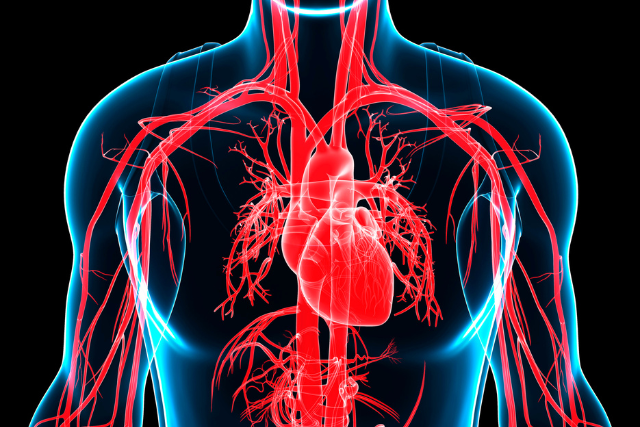Cardiovascular diseases (CVD) are the leading cause of death worldwide, making advances in the early detection, treatment, and management of heart-related conditions a critical area of medical research. Artificial intelligence (AI) is revolutionizing cardiology by enabling more personalized care through predictive analytics, enhanced diagnostics, individualized treatment plans, and continuous monitoring. By leveraging AI’s ability to analyze vast datasets, including patient records, imaging results, and real-time health data from wearable devices, cardiologists are making more precise and personalized decisions for their patients.
AI in Early Diagnosis of Cardiovascular Diseases
Early detection of cardiovascular disease is essential for preventing severe complications, such as heart attacks, strokes, and heart failure. Traditional diagnostic methods rely on clinical judgment, basic health assessments (e.g., blood pressure, cholesterol levels), and imaging techniques like echocardiograms and electrocardiograms (ECGs). However, these methods can sometimes miss early signs of disease, especially in patients without overt symptoms. AI’s ability to analyze vast amounts of health data and detect subtle patterns provides a more accurate and earlier diagnosis.
AI in Coronary Artery Disease (CAD): Coronary artery disease, caused by the narrowing or blockage of coronary arteries, is a leading cause of heart attacks. AI is increasingly being used to analyze medical images, such as coronary angiograms and CT scans, to detect blockages earlier and more precisely than manual analysis. A notable example is the use of AI-powered tools like HeartFlow FFRct, which uses AI to create a 3D model of a patient’s coronary arteries from CT scans. It then assesses the functional impact of blockages on blood flow to the heart, providing cardiologists with precise information on the severity of the disease .
By using AI to detect coronary artery disease earlier, cardiologists can intervene before the disease progresses to more severe stages, reducing the risk of heart attacks. A study published in The Lancet demonstrated that HeartFlow FFRct reduced unnecessary invasive procedures and improved patient outcomes by enabling a more accurate diagnosis of coronary artery disease .
AI in Heart Attack and Stroke Prediction: Predicting cardiovascular events like heart attacks and strokes is another area where AI is making a significant impact. Traditional risk prediction models, such as the Framingham Risk Score, estimate a patient’s risk based on factors like age, cholesterol levels, and smoking history. However, these models often fail to account for more complex interactions between risk factors.
AI-powered predictive models, such as those developed by Google’s Verily and IBM Watson Health, use machine learning algorithms to analyze large datasets, including EHRs, genetic information, and even retinal scans, to predict a patient’s risk of heart attack or stroke with greater accuracy. For example, researchers at Verily have developed an AI system that analyzes images of the retina (the back of the eye) to predict cardiovascular risk, including the likelihood of a heart attack or stroke, with surprising accuracy . This non-invasive method allows for earlier intervention, potentially saving lives by identifying patients who are at risk before they experience symptoms.
AI in Arrhythmia Detection: Arrhythmias, or irregular heart rhythms, are another cardiovascular condition where AI has demonstrated its diagnostic capabilities. The most common type, atrial fibrillation (AFib), increases the risk of stroke and heart failure. AI algorithms, such as those developed by AliveCor’s KardiaMobile and Apple Watch, can analyze ECG data captured by wearable devices to detect AFib and other arrhythmias in real time. These AI tools have been FDA-approved and are already being used by millions of patients worldwide to detect arrhythmias earlier than ever before .
A 2020 study published in The New England Journal of Medicine found that AI analysis of ECG data was able to detect AFib with higher accuracy than traditional methods, even in asymptomatic patients. This early detection allows for timely treatment, such as anticoagulant therapy, to reduce the risk of stroke.
Personalized Treatment Plans in Cardiology
Once cardiovascular conditions are diagnosed, AI plays a crucial role in creating personalized treatment plans that account for individual patient differences, such as genetic makeup, lifestyle, and medical history. AI’s ability to process and analyze large datasets enables cardiologists to move beyond a one-size-fits-all approach to treatment and instead tailor interventions to the specific needs of each patient.
AI and Personalized Medication in Hypertension: Hypertension (high blood pressure) is one of the most common risk factors for cardiovascular disease, and managing it effectively often requires adjusting medications based on a patient’s response. AI can help personalize antihypertensive therapy by predicting how individual patients will respond to different medications. A study published in Nature Medicine demonstrated how AI algorithms could analyze data from clinical trials and EHRs to identify the most effective blood pressure medications for individual patients based on their genetic profiles and past medical history .
This personalized approach to managing hypertension reduces the trial-and-error process often associated with prescribing blood pressure medications, leading to better blood pressure control and reduced risk of heart attacks, strokes, and kidney damage.
AI in Personalized Heart Failure Treatment: Heart failure is a condition in which the heart is unable to pump blood effectively, and managing it requires a combination of medications, lifestyle changes, and sometimes devices like pacemakers or defibrillators. AI is improving the management of heart failure by helping doctors tailor treatments based on a patient’s unique condition.
AI-powered tools like CardioMEMS, a wireless implantable sensor that monitors pulmonary artery pressure, provide real-time data on a heart failure patient’s condition. The sensor communicates with an AI system that analyzes the data to predict worsening heart failure, allowing for early intervention and personalized adjustments to treatment. A study published in The Journal of the American College of Cardiology found that patients using CardioMEMS had a 30% reduction in hospitalizations due to heart failure, highlighting the value of AI in personalizing care and preventing complications .
AI in Personalized Treatment for Atherosclerosis: Atherosclerosis, the buildup of plaques in the arteries, can lead to heart attacks and strokes. Traditionally, treatment decisions, such as whether to perform surgery or use medications, are based on the severity of blockages and general guidelines. AI allows for a more personalized approach by integrating imaging data, genetic information, and lifestyle factors to recommend the best course of action for each patient.
For example, AI algorithms developed by companies like Cleerly use advanced imaging analysis to evaluate plaque composition and the likelihood of plaque rupture, which can lead to heart attacks. These AI tools help cardiologists determine which patients are more likely to benefit from surgical interventions, such as stents or bypass surgery, versus those who can be managed with medications and lifestyle changes. This personalized approach improves outcomes by ensuring that each patient receives the treatment most appropriate for their specific condition .
Continuous Monitoring and AI-Powered Wearables
One of the most promising applications of AI in cardiology is in continuous monitoring. Wearable devices, such as smartwatches and fitness trackers, are increasingly being integrated with AI to monitor heart health in real time. These devices collect data on heart rate, physical activity, and even sleep patterns, which can then be analyzed by AI algorithms to detect abnormalities and provide personalized recommendations.
AI and Remote Monitoring for Heart Failure: For heart failure patients, continuous monitoring is essential to prevent hospital readmissions and manage symptoms effectively. AI-powered remote monitoring systems, such as the aforementioned CardioMEMS device, provide physicians with real-time data on a patient’s heart function. This data allows cardiologists to adjust medications, recommend lifestyle changes, and intervene before the patient’s condition worsens.
Another example is the use of AI in the HeartLogic system by Boston Scientific, which monitors a range of physiological parameters, including heart sounds, respiration rate, and thoracic impedance, to predict worsening heart failure. A study published in The European Heart Journal found that HeartLogic was able to predict heart failure events weeks in advance, allowing for earlier intervention and reducing hospitalizations by 70% .
AI in Preventive Cardiology: For patients at risk of cardiovascular disease, AI-powered wearables like the Apple Watch and Fitbit are playing a key role in preventive cardiology. These devices continuously monitor heart rate, detect irregular rhythms, and even provide insights into sleep quality and physical activity levels. AI algorithms analyze this data and provide users with personalized health recommendations, such as increasing physical activity or consulting a physician for potential arrhythmias.
A study published in JAMA Cardiology demonstrated that AI-powered wearables could help prevent cardiovascular events by encouraging users to adopt healthier behaviors based on real-time health data. For example, wearables with AI-driven insights prompted users to increase their daily step count, improve sleep hygiene, and adhere to medication regimens, all of which contribute to better heart health .
AI in Imaging and Diagnostics
AI is also revolutionizing how cardiac imaging is performed and interpreted, allowing for more accurate diagnoses and personalized treatment planning.
AI and Echocardiography: Echocardiograms, or ultrasound images of the heart, are a common diagnostic tool in cardiology. Traditionally, interpreting these images requires significant expertise, and the results can vary depending on the experience of the cardiologist. AI-powered systems like EchoMD use machine learning algorithms to analyze echocardiogram images and provide a more objective and accurate assessment of heart function .
A study published in Circulation found that AI analysis of echocardiograms was able to identify early signs of heart failure and other cardiovascular conditions with greater accuracy than human clinicians. By providing a more detailed assessment of heart function, AI enables more personalized treatment plans and earlier interventions.
AI in Coronary Artery Imaging: Coronary artery disease is often diagnosed using imaging techniques like coronary CT angiography. AI algorithms, such as those developed by Arterys and Zebra Medical Vision, enhance the analysis of these images by identifying plaques, calcifications, and other abnormalities with greater precision than traditional methods. This improved accuracy helps cardiologists make more informed decisions about whether to recommend interventions like stenting or bypass surgery, ensuring that each patient receives the most appropriate treatment for their condition .
AI is transforming cardiology by enabling more personalized care at every stage, from early diagnosis and risk prediction to treatment and continuous monitoring. Whether it’s detecting coronary artery disease before symptoms appear, predicting heart attacks and strokes, or optimizing treatment plans for conditions like heart failure and hypertension, AI offers cardiologists powerful tools to tailor care to each patient’s unique needs. Moreover, AI-powered wearables and remote monitoring devices are helping patients take a more active role in managing their heart health, providing real-time insights and personalized recommendations.
Sources:
- “HeartFlow FFRct Analysis: AI in Coronary Artery Disease Diagnosis,” The Lancet, 2021.
- “AI-Powered Retinal Imaging for Cardiovascular Risk Prediction,” Nature Medicine, 2020.
- “AI-Based Wearable Technology for Arrhythmia Detection,” The New England Journal of Medicine, 2020.
- “AI in Hypertension Management: Personalized Medication Strategies,” Nature Medicine, 2022.
- “Heart Failure Remote Monitoring with AI: A Review of CardioMEMS and HeartLogic,” The European Heart Journal, 2023.
- “AI-Driven Analysis of Echocardiograms,” Circulation, 2022.




